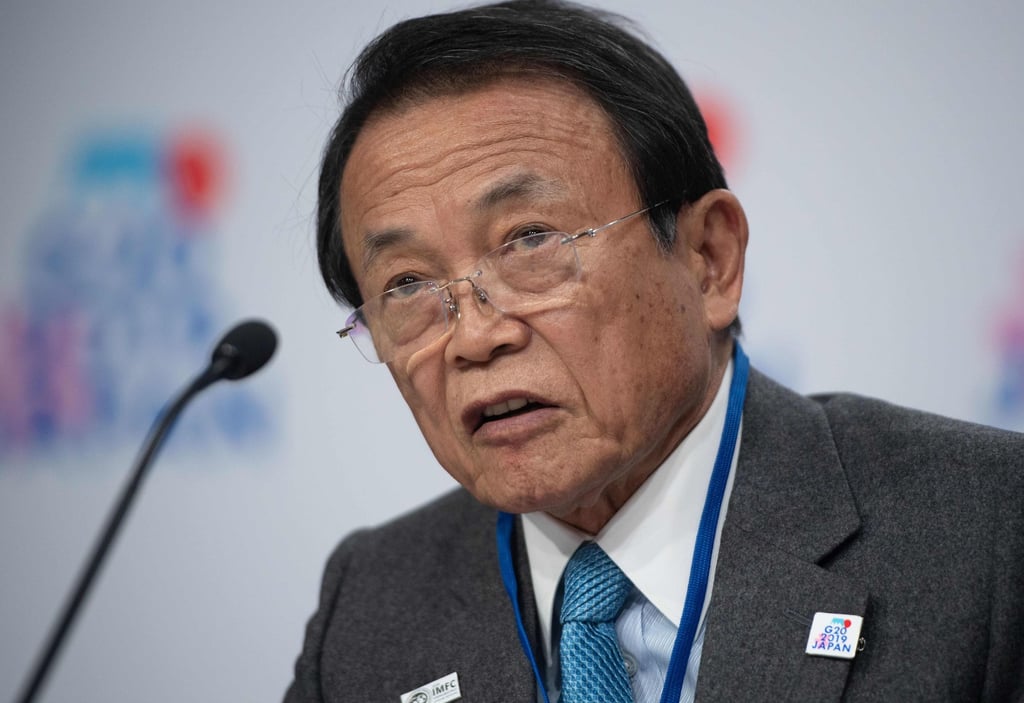Advertisement
Will Taro Aso’s past overshadow Japan and South Korea’s bid to settle wartime history?
- Japan’s former PM Taro Aso will meet South Korean President Yoon Suk-yeol to discuss the topic of Koreans forced into labour by Japanese firms
- Aso’s appointment raised eyebrows, given his family’s wealth was built by using Korean forced labourers during Tokyo’s colonial occupation of the region
Reading Time:4 minutes
Why you can trust SCMP

Former Japanese Prime Minister Taro Aso was due to hold talks in Seoul on Wednesday with South Korean President Yoon Suk-yeol over the issue of Koreans forced into labour for Japanese companies during Tokyo’s colonial occupation of the peninsula.
Advertisement
The controversial issue has dogged bilateral relations for generations but became more acute under Yoon’s immediate predecessor, Moon Jae-in. Seoul is seeking to get ties back on track and Aso’s visit is being seen as a clear sign that Tokyo also wishes to put the matter behind the two nations.
Aso’s appointment for the discussions has raised eyebrows in some quarters, however, given that his family’s wealth was in part built with the use of Korean forced labourers and Allied prisoners of war in its Japanese mines.

Others have pointed out that Aso has a reputation for making inappropriate comments that have infuriated segments of domestic and foreign society, and there are fears another unguided aside could set back efforts to build bridges.
Sources told Kyodo News that Aso will hold two days of talks over the forced labour issue with Yoon in Seoul. He is also expected to express his condolences for the people who died during Halloween celebrations in the Itaewon district of the city this past weekend.
Japan has long held the position that the issue of compensation for former labourers at Japanese corporations during the 1910-1945 colonial period was settled under the 1965 agreement that normalised diplomatic relations and saw Tokyo pay redress. A series of court rulings in Korea in recent years, including at the Supreme Court level, have disagreed with that position and ordered a number of Japanese firms to compensate former labourers.
Both sides now agree they want to solve this problem and the visit by Aso is significant as he is the former prime minister
Under Tokyo’s instructions, those firms resisted making payments and, as a result, courts ordered the seizure of their assets in South Korea. A final decision on liquidating those holdings to provide compensation to the former labourers is believed to be imminent and both sides are keen for an agreement to be reached before that point.
Advertisement

Advertisement